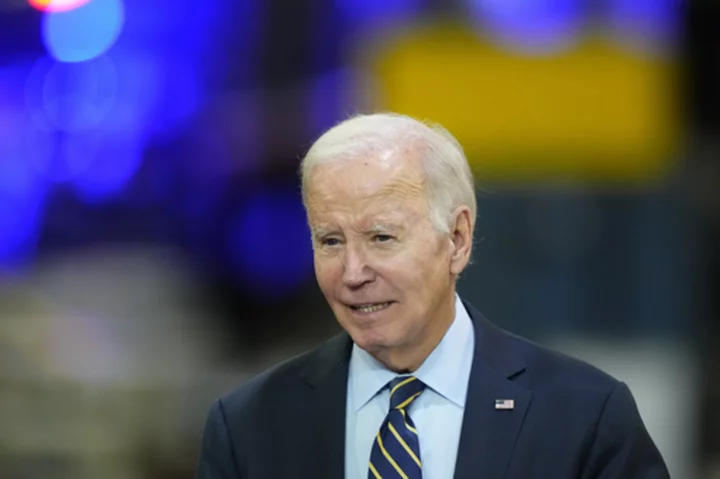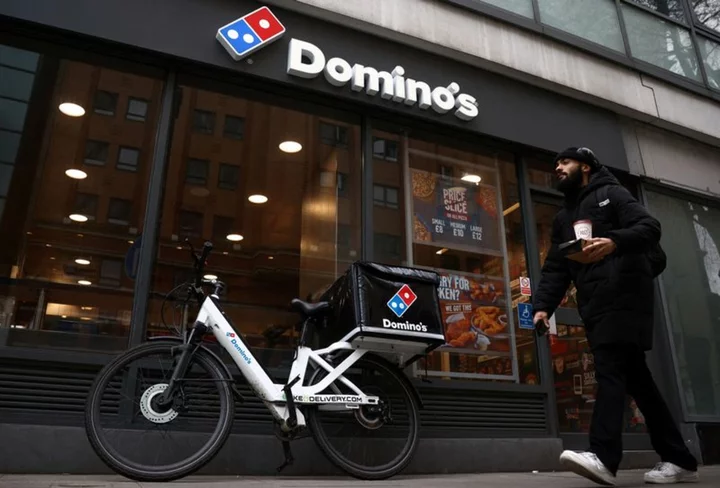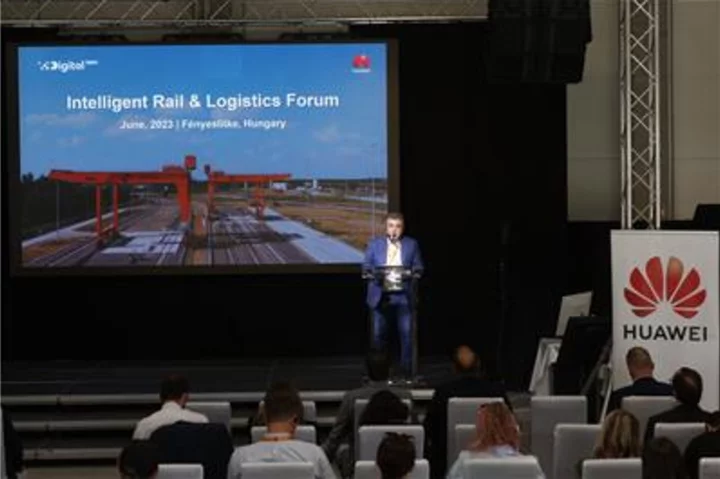WASHINGTON (AP) — President Joe Biden went to Chicago on June 28 to give a landmark speech on “Bidenomics," only to learn in private during the trip about a soon-to-close auto factory, news that was a challenge to his vision for the country.
The prospect of a shuttered Stellantis plant in the small city of Belvidere became an immediate priority for Biden. He ordered up an economic analysis and spoke to company officials about the plant, according to White House officials. The Democratic president wanted to show that his policies could deliver for workers, rather than repeat the decades of factory closures that had gutted parts of the Midwest and fed into a deep political divide.
On Thursday, Biden will visit Belvidere to showcase that auto plant, which has reopened as part of the settlement of a targeted strike by the United Auto Workers union.
The reopening “goes to the heart of who he is, the heart of his vision for the country and how he's led,” said Jen O’Malley Dillon, White House deputy chief of staff.
Stellantis, the maker of Jeep, Dodge and Ram vehicles, agreed to hire back 1,200 employees to build pickup trucks and to add another 1,300 workers for a battery factory.
The resolution of the strike was an early win for what Biden says is a worker-centered economy. But the success of the factory and of the tentative contract with workers will ultimately hinge on the ability of automakers to keep generating profits as they shift toward electric vehicles in a competitive market.
Many voters still feel dour about the overall economy, and there is an open question as to whether the UAW contract and signs of wages outpacing inflation can change their views. In polls, U.S. adults have consistently given Biden low marks on the economy after a burst of inflation as the pandemic began to recede.
O'Malley Dillon said the UAW contracts and the auto plant reopening reflect a larger focus on workers by the president. Unionized nurses, truck drivers and others also negotiated to receive pay raises by pushing their employers to recognize the value of their work. It's a broader trend over the past year that was made possible in part by a strong job market as the unemployment rate is at a healthy 3.9%.
Labor unions tend to be reliable supporters of Democrats. But by speaking at factories and union halls, Biden is also trying to reach disaffected blue-collar voters who found a voice in Republican front-runner and former President Donald Trump.
Biden argues that innovations within the auto sector such as EVs should not lead to layoffs and factory closures.
“The president’s philosophy is that when there’s a technology change, industrial companies’ first goal should be to retool, revamp and rehire in the same community,” said Gene Sperling, a senior White House aide who was the liaison to the UAW and automakers during the strike.
Trump has said that the rise of EVs backed by the Biden administration will cause factory job losses. He has suggested that the work will migrate to China and that the United States should stick with gasoline-powered vehicles, even though the emissions worsen climate change.
The EV shift does carry a risk for auto makers. Sales have started to slow amid concerns about recharging and the expensive price of the vehicles, despite tax incentives designed to improve affordability.
On Thursday, Biden will meet with UAW President Shawn Fain and Illinois Gov. J.B. Pritzker. The UAW has yet to endorse Biden for the 2024 election, unlike most other large unions.
During the nearly 45-day strike that hit General Motors, Ford and Stellantis, the White House chose to talk to all parties while letting the UAW execute its strategy of targeted work stoppages. Biden took the historically unprecedented step of joining workers on the picket line, a presidential first.
In calls that White House officials had with Stellantis, the company was never pushed to open the Belvidere factory, but Biden raised the matter. His choice to sympathize with workers as the strike escalated carried some political risk as high interest rates on auto loans and inflation coming out of the pandemic have become points of criticism by Republican lawmakers.
The contracts, if approved by 146,000 union members in the coming weeks, would dramatically raise pay for autoworkers. They would get pay increases and cost-of-living adjustments that would translate into a 33% wage gain. Top assembly plant workers would earn roughly $42 per hour.









